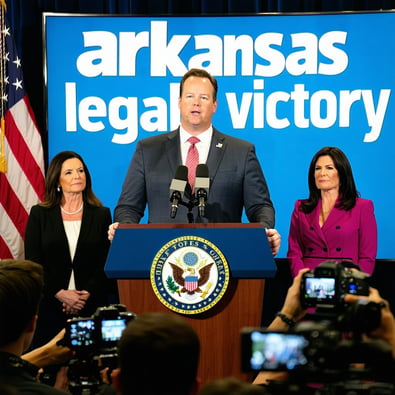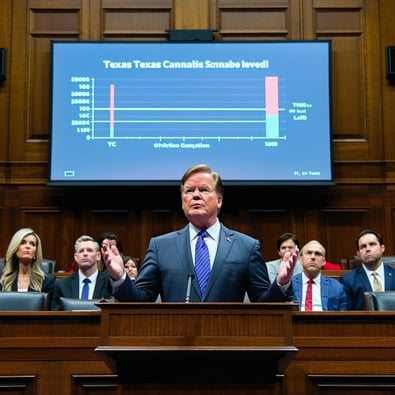Lawmaker behind the Arkansas proposal said he doesn’t like seeing the products in convenience stores.
One Arkansas lawmaker wants to ban the hemp products that have taken over shelves at gas stations and convenience stores.
Republican state Sen. Tyler Dees introduced a bill last week that would ban the likes of Delta-8, Delta-9 and Delta-10 –– legal, but under-regulated compounds that have been known to produce a high similar to that of cannabis.
“It’s because of an accessibility issue where you can walk into a regular gas station and purchase this product as if you’re purchasing Skittles or any other candy,” Dees told local news station THV11.
Hemp-derived products have become ubiquitous in recent years, particularly following Congress’ passage of the 2018 Farm Bill, which legalized industrial hemp production.
But critics have lamented that many of those hemp products are subject to little, if any, regulation, posing risks to consumers who believe what they’re consuming to be mostly harmless.
Dees claimed to the station that poison control “is being contacted of cases where kids are, are digesting products that are causing harm to them.”
THV11 followed up with the state’s poison control, which “said that while there are no specific numbers when it comes to Delta 8 because the data didn’t start being collected until January 2021, they have been seeing an increase in kids being exposed to THC products.”
“Any THC-containing product is potentially harmful. Whether or not it’s Delta 8 or Delta 9,” Ari Filip, the medical director for Arkansas Poison Control Center, told the station. “We worry about this having psychoactive effects so it should be kept away, locked inaccessible to children.”
Arkansas voters rejected a proposal at the ballot last November that would have legalized recreational cannabis in the state.
The state’s Republican governor, Sarah Huckabee Sanders, who was elected in the November election, voted against the proposal.
“I don’t think that with the drug epidemic that we have across this state, frankly across the country, that adding and giving more access to that does anything to benefit Arkansas, so I certainly wouldn’t be supportive of that,” Huckabee Sanders, a former press secretary for Donald Trump, said in October.
Her father, former Arkansas Gov. Mike Huckabee, has also spoken ill of the cannabis industry.
In a video last fall urging voters to reject the legalization measure, Huckabee said that “you aren’t the one who is going to be making the money, drug cartels will.”
“And if you are one of those people that can sell the drug, maybe you’ll make a buck off of the gullible people who will somehow convince themselves this is absolutely harmless,” the former governor added.
Medical cannabis is legal in Arkansas, however, and a co-sponsor of the bill to ban Delta-8 and other hemp products, state Sen. Jonathan Dismang, insisted that the measure would not affect that program.
“I mean, you have to have your card and there are benefits that are, you know, for those patients, this isn’t about that,” Dismang told THV11. “I mean, a high school kid right now can go purchase. Again, I think that’s wrong.”
Arkansas legalized medical cannabis in 2016, when a majority of voters approved an amendment authorizing the treatment.
Per the state’s Department of Health, patients with the following conditions may qualify for a medical cannabis prescription: “Cancer; Glaucoma; Positive status for human immunodeficiency virus/acquired immune deficiency syndrome; Hepatitis C; Amyotrophic lateral sclerosis; Tourette’s syndrome; Crohn’s disease; Ulcerative colitis; Post-traumatic stress disorder; Severe arthritis; Fibromyalgia; Alzheimer’s disease; Cachexia or wasting syndrome; Peripheral neuropathy; Intractable pain which is pain that has not responded to ordinary medications, treatment, or surgical measures for more than six (6) months; Severe nausea; Seizures including without limitation those characteristic of epilepsy; Severe and persistent muscle spasms including without limitation those characteristic of multiple sclerosis; and any other medical condition or its treatment approved by the Department of Health.”




